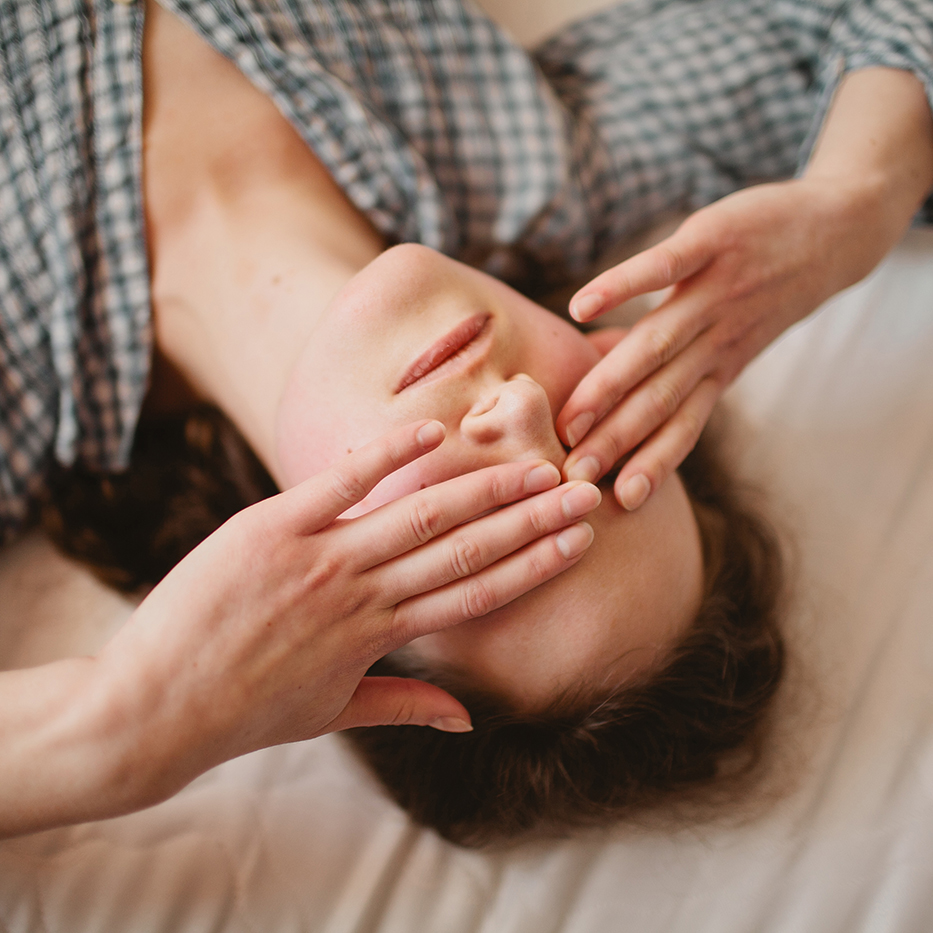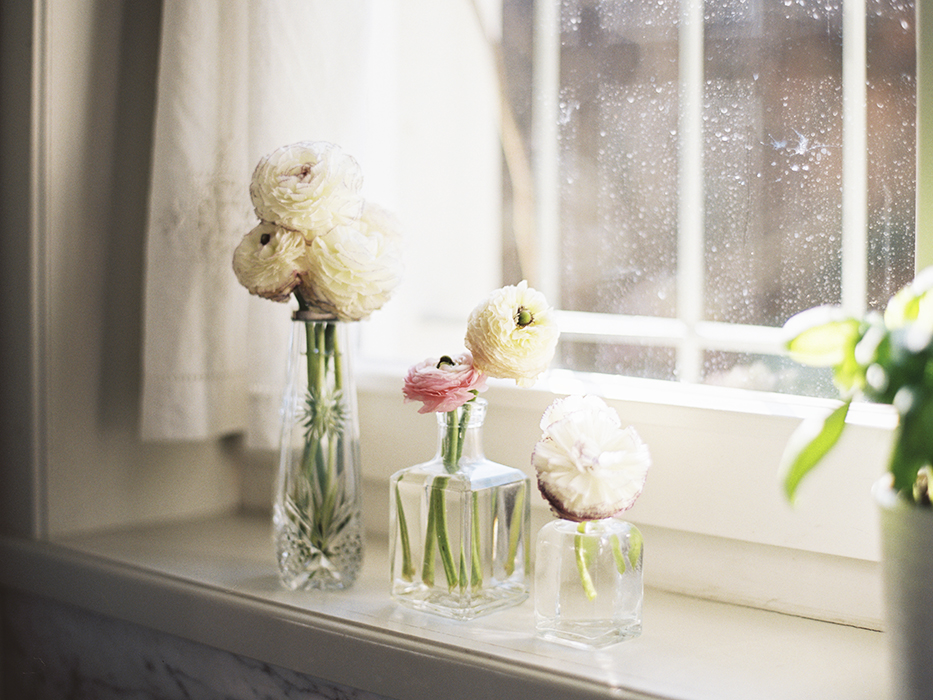I Chose to Seek Treatment for My Anxiety, and I'm Finally Feeling Free
According to the National Alliance on Mental Illness, approximately 18.5% of adults in the United States experience mental illness every year. That's a significant portion of our population—one in five people—yet the stigma and misunderstanding that surround mental health remain. That's why in honor of Mental Health Awareness Month, we put the call out to our readers to share their own experiences with mental illness: their victories, their struggles, and what it's really like to negotiate a society that makes misguided assumptions about who you are based on an arbitrary definition of the word "normal." Our series My Life With highlights the raw, unfiltered stories of women who deal with anxiety, bipolar disorder, postpartum depression, and more, all in their own words. Below, Susan Doetsch shares how she came to the decision to go on medication after a lifelong struggle with anxiety.

The first appointment I had with a psychiatrist is an experience that I’ve replayed in my mind more than a few times. It’s a recent event; I started seeing the psychiatrist at the beginning of March after my therapist and I discussed the possibility of starting anti-anxiety medication. I sat in his spacious office, on a couch big enough for three people, across from the single chair where he perched. He looked at me squarely. I thought to myself, So this is what a psychiatrist is like. I’d figured as much. Relaxed, professional, focused, but deeply connected to an emotional current somewhere under the surface—this quality in him was something tangible but not visible.
The doctor asked me a few surface-level questions, and I would tell you what they were, but I was so nervous in that moment that I forget them now. He asked me how long I had been experiencing symptoms of anxiety, and I told him that I have very clear memories of being 6 years old and going through a period of time where I had a compulsion to tell my mom every single negative thought that popped into my head. Things like “Mommy, I just had a thought that one of my classmates is fat” or “Mommy, I just thought a bad word." Instead of being able to dismiss the thoughts as just that—thoughts—I was overwhelmed by such a feeling of intense guilt that it would often bring me to tears. I would constantly tug on my mom’s shirt or call out to her from bed, and she would do her best to comfort me.
The psychiatrist looked up at me after making a few notes on his iPad. He asked me to describe the symptoms I currently experience. I told him about the stomach aches, the distinct feeling of anticipation where I feel like I’m at the top of a roller coaster that is about to drop but never does, the racing thoughts, the worry over how I will be perceived or if I will be liked, the inability to focus, feeling so overwhelmed sometimes that I just shut down, feeling the compulsion to be perfect so deeply that I constantly say sorry… The doctor looked at me and said, “Am I the first psychiatrist you’re seeing?” I told him the answer: Yes. He scribbled some more on the iPad screen with a stylus and then looked back up at me.
This is the moment that I keep coming back to, the moment that I have been turning over in my mind when I think about the changes that are happening in my 22nd year. This man, a middle-aged psychiatrist whom I’d met just 30 minutes prior, uttered a sentence that performed the emotional equivalent of a weight-lifting spotter in the gym. He said, “So, you’ve been white-knuckling it for a long time.”

This might sound weird, but I really did feel immediate relief at the sound of those words. He heard me, he saw me, and he recognized that I had been “white-knuckling” this facet of myself for years. I had attempted over and over again to reconcile the idea that I would live struggling to keep my head above water, treading at a nearly impossible pace just to survive. Every effort possible had been made to justify myself to, well, myself. It was hard work, it took a lot of energy, and it made all the things I love most in life more challenging. Listening to my friends without having a second conversation in my head, producing schoolwork to be proud of, writing, playing sports, talking to new people, contributing to my family… All of these things took so much effort, and even when I tried, perfectionism made it almost impossible to be satisfied.
It’s a funny thing, living in one reality for so long and then realizing the presence of a different one in such a concise moment. The make-believe backpack I’d been carrying around since adolescence stuffed with little worry pebbles fell from my back when this doctor acknowledged my anxiety. Sometimes athletes train for events at a higher altitude than the competition site in hopes that conditioning themselves in a harsher climate will improve their ability to perform during the real thing. This appointment was a lot like that; my doc’s words were the extra boost of oxygen that allowed me to run like mad, free and wild on the track.
A moment of euphoric validation isn’t enough to heal years of conditioned brain patterning, though; it takes practice to see anxiety for what it is, and treat it accordingly. I’ve started taking medication, which helps a ton. I’ve started giving myself more breaks than I used to. I don’t internally berate myself every time I make a mistake. I could say that recognizing the presence of anxiety inside myself is one of the hardest things I’ve ever done, but honestly, I think that not acknowledging it for all those years was harder. Somehow calling my problem what it is takes away so much of its power. Most of my battle now is gaining the right tools to fight fair against a disorder that had the upper hand for way too long.
Experience with anxiety allows me to be more compassionate to people dealing with similar problems and allows me to enjoy the relief I’m feeling so much more. It’s empowering to experience change even after resolving myself to what I thought were the facts of life. The facts are still the facts—I have anxiety, I need help treating it, and it can be challenging. But the meaning and weight of those things are so different than they were six months ago. Instead of feeling weak, I feel brave saying that I need help. It feels loving to take better care of myself, and it feels real to talk with people about anxiety and its effects. It feels good!
Anyone reading this who struggles with any disorder (or with anything, really) knows that the concept of a “quick fix” isn’t a reality. I’m learning new things every day about how to overcome and how to build new mental habits. I’ll say the token phrase: It’s a process. I don’t expect to ever feel “done” in the sense of being complete; I think life is about change and the humility to willingly comply with it.
My mom has a habit of bringing me flowers. She brings me bouquets, ranunculus, stargazers, wax flowers, and roses, anything she finds herself attracted to on her way to visit my apartment. She hands me the bunch and says, “These made me think of you.” This practice of hers has been stuck in my mind lately as a testament to the fact that we do not see ourselves as others see us. My mother, who raised me and saw me at my very worst, looks at something so perfect and unblemished as the nurtured blooms of a bouquet and thinks of me. I do not see myself as these flowers. I see myself as the seed on the kitchen sink windowsill, soaking in water so as to promote full and healthy growth before being put in the ground. So much life is condensed into these tiny spheres; they have so much potential. Their life cycle is a miracle, a compulsion of nature to grow up and toward light and warmth until beauty sprouts from the tips of the plants. But right now, they are just seeds, starting the task of becoming a part of the world around them. They’re not done yet—I’m not done yet.
This article is provided for informational purposes only and is not intended to be used in the place of advice of your physician or other medical professionals. You should always consult with your doctor or healthcare provider first with any health-related questions.